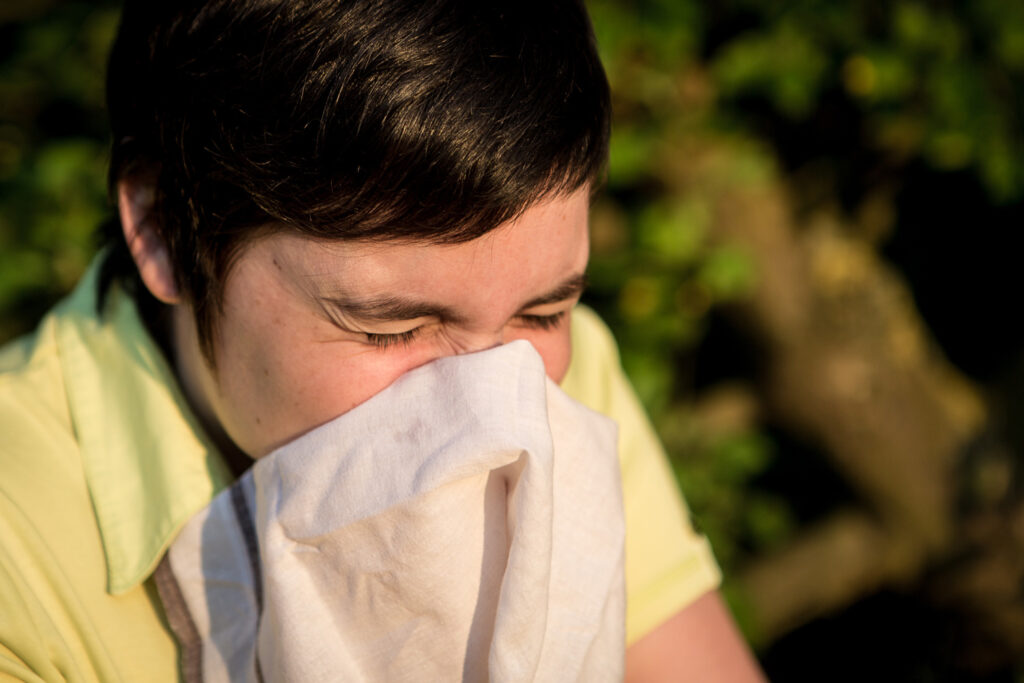The 2024 pollen season has officially started with the blossoming of alder and hazel trees. While concentrations are still relatively low due to cold temperatures, peaks are expected in the coming weeks.
While most sniffly noses are currently caused by the common cold or other winter bugs, the arrival of the pollen season will soon see hay fever sufferers repeatedly sneezing and blowing their noses. Belgian health institute Sciensano confirmed that the hay fever season has begun, with the first pollen of the year coming from alder and hazel trees, of which blossoms have been detected for several weeks.
"Individuals sensitive to the pollen from these trees are at risk of developing allergic symptoms, especially if they are particularly sensitive or near these trees," Sciensano said.
The typical symptoms are very diverse, ranging from itching, red eyes and sneezing fits to nasal congestion, blocked sinuses, runny nose and breathing problems. Some people experience a loss of sense of taste and smell, and itching at the back of the mouth or throat. These can easily be confused with, for example, Covid-19.
However, Sciensano points out that allergy does not cause fever or muscle pain and hay fever symptoms tend to last much longer.
Climate effect
Currently, airborne pollen concentrations of the plants remain relatively low due to low temperatures, but these can rise rapidly if weather conditions change – resulting in many pollen grains being dispersed in the air.
"Even though the last frost period undoubtedly damaged some of the pollen production, alders and hazels are now in full bloom and their pollen will be released massively into the air over a shorter period, once conditions for dispersal are favourable," said Astha Tiwari, a scientific associate of Sciensano's Mycology and Aerobiology Department.
The slightly later start of the 2024 pollen season goes against the recent trend of the pollen season of alder and hazel starting unusually early. Sciensano noted that this is a phenomenon that is more common due to climate change. "The temperature rise exerts pressure on the reproductive cycle of trees, resulting in earlier and more abundant pollen production."
It added that measuring pollen levels is an indicator of climate effects on the environment, with direct implications for human health. "In the future, people may face more frequent pollen allergy problems."

